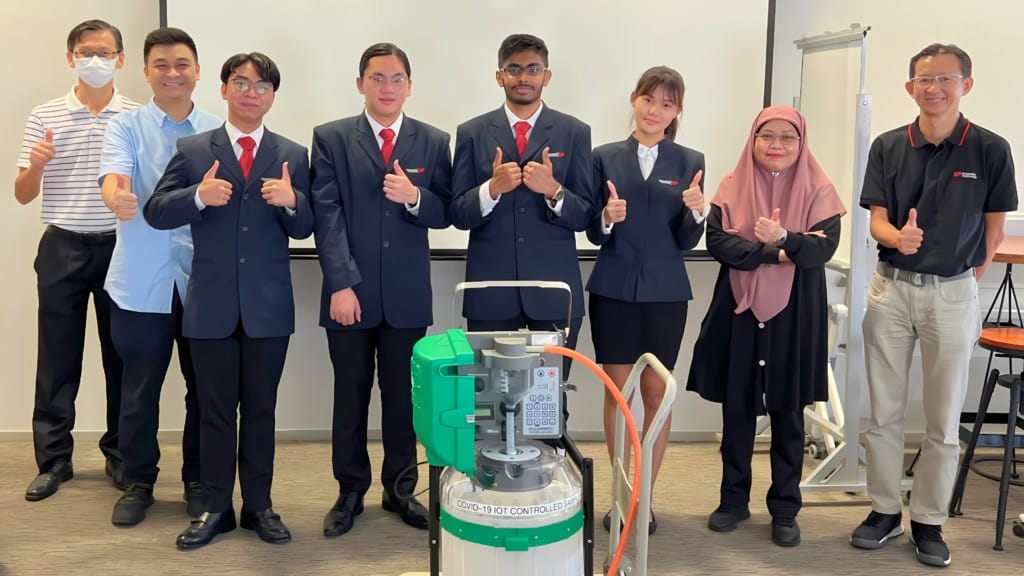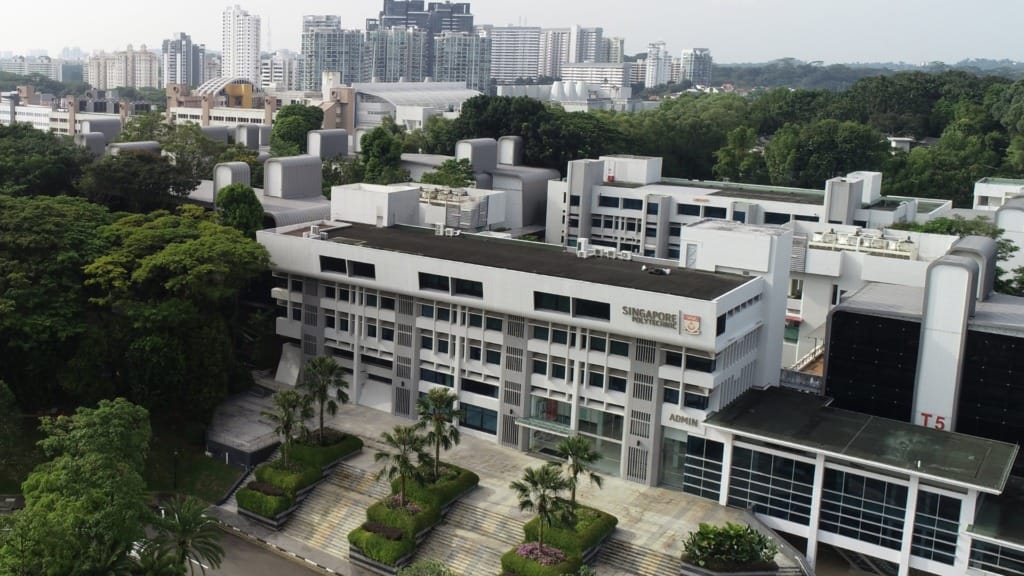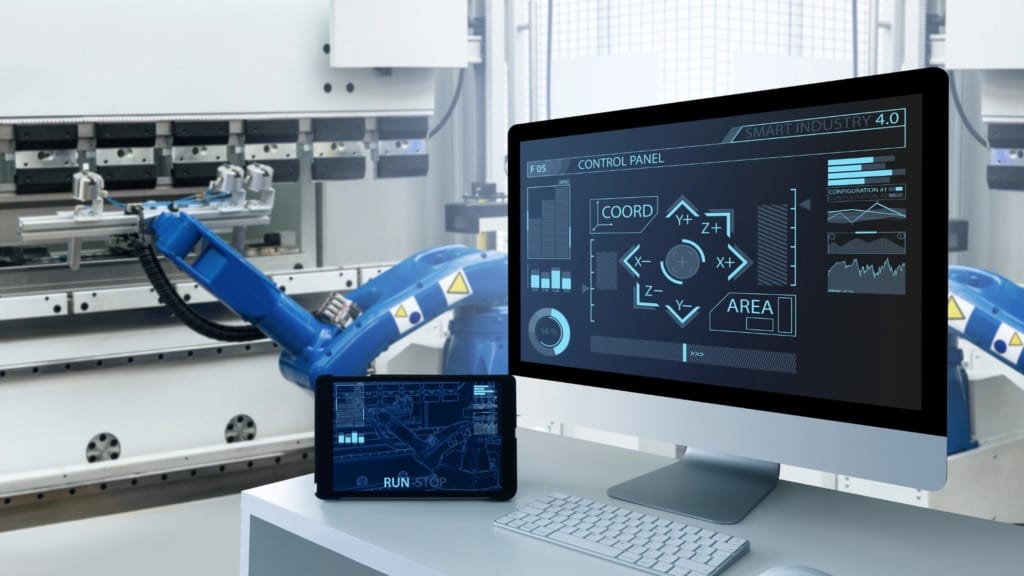Singapore Polytechnic: Bridging education and enterprise for SME innovation in Southeast Asia
Singapore Polytechnic bridges education and enterprise to drive SME innovation, sustainability, and cross-border growth in Southeast Asia.

Small and medium-sized enterprises (SMEs) in Southeast Asia face mounting pressure to digitalise, embrace sustainability, and compete in increasingly integrated markets. These businesses form the backbone of national economies, contributing between 40% and 60% of GDP in most ASEAN countries, yet many struggle with limited access to innovation resources, constrained budgets, and a shortage of future-ready talent.
Table Of Content
Singapore Polytechnic (SP) has positioned itself at the intersection of education and enterprise to address these challenges. By aligning its programmes with real-world business needs and building regional partnerships, SP is enabling SMEs to access scalable solutions, test new ideas, and tap into a talent pool that understands both technological innovation and the realities of SME operations.
The Johor-Singapore Special Economic Zone (JS-SEZ) provides a timely backdrop for this effort. The zone is designed to deepen cross-border economic ties, streamline trade flows, and foster collaboration between enterprises in both countries. For SMEs, this creates both opportunities and challenges. They need support systems that can bridge knowledge gaps, supply future-ready workers, and connect them to sustainable growth pathways. SP’s strategy—anchored in applied learning, industry partnerships, and platforms such as the Enabling Platform Partnership—demonstrates how education can be a catalyst for enterprise transformation.
How SP’s platforms connect students and SMEs
Industry-academic platforms serve as essential bridges between student learning and enterprise needs. Events such as Automation SolutionGO! and the Regional Industry Networking Conference (RINC) are more than showcases—they are ecosystems where SMEs, policymakers, and students interact directly. Through exhibitions, panel discussions, and co-created projects, businesses gain exposure to fresh ideas and emerging technologies, while students gain a realistic picture of industry challenges. These platforms also host initiatives such as the GO! Awards, which recognise SMEs and solution providers demonstrating excellence in growth, sustainability, and technology adoption.

Ser Khoon Toh, Senior Director of the Engineering Cluster at Singapore Polytechnic, said, “As part of our work with SMEs, we want to make transformation stick — not just through technology adoption or strategy, but through how leaders and employees think, what they can do, and how they act day-to-day.”
For SMEs, these events provide something particularly valuable: a space to experiment with innovation in a lower-cost, lower-risk setting. Instead of committing significant resources upfront, companies can pilot a prototype developed by students or co-create a process with academics, testing viability before scaling. This safe sandbox model is especially important for resource-constrained firms that want to innovate without jeopardising ongoing operations.
The benefits extend beyond experimentation. Industry partners often mentor students, offering guidance on project development, and in turn, identify potential hires who already understand their business environment. For students, these platforms bridge the gap between classroom knowledge and workplace realities, giving them exposure to the constraints SMEs face and the chance to contribute directly to business outcomes.

The Enabling Platform Partnership takes this approach further by extending collaboration across borders within the JS-SEZ. It brings together institutes of higher learning, trade associations, and enterprises from Singapore and Malaysia to co-develop training, upskilling, and technology adoption programmes. For example, SP partnered with Johor Skills Development Centre to train more than 140 staff of Tai Sin Electric in sustainability practices, aligning them with the company’s Singapore workforce. Such cross-border collaborations highlight how SMEs can leverage shared resources and regional expertise to accelerate transformation. In another case, SP collaborated with W2 Industrial Services Hub to design a remote cloud-based wastewater sampling system that reduced downtime, showing how SME-specific challenges can be solved with practical innovation.
Practical learning prepares students to solve SME challenges

At the heart of SP’s approach is an applied learning model designed around real-world problem-solving. Large corporations may have dedicated innovation teams and the luxury of long-term R&D, but SMEs operate differently. They must prioritise immediate, practical outcomes while working with lean resources. SP recognises this by structuring its curriculum around projects, hackathons, and capstones that mirror the constraints of SME environments.
This prepares students to balance ambition with practicality. They learn to innovate within tight budgets, manage small teams, and design solutions that deliver measurable impact. These are the same conditions SMEs face daily, making SP graduates particularly well-suited to join such firms without requiring long adaptation periods. Beyond these projects, SP also exposes students and enterprises to overseas best-in-class programmes, giving SMEs access to global practices that can inform their transformation journey.
Programmes are co-developed with industry to remain relevant to current market needs. Whether it is digital transformation, sustainability initiatives, or advanced manufacturing, the curriculum evolves alongside enterprise priorities. For instance, the Susthack@Sunway Bootcamp and Hackathon saw students collaborate across borders to propose solutions aligned with the United Nations Sustainable Development Goals, reinforcing the link between academic work and pressing industry issues.
This emphasis on applied learning does more than sharpen technical skills. It cultivates resilience, adaptability, and an entrepreneurial mindset. Students are encouraged to think critically, make trade-offs, and deliver results under pressure—capabilities that SMEs increasingly demand as they navigate sustainability transitions and digitalisation pressures.
EcoHome as a model of student-driven regional innovation
The EcoHome project exemplifies the value of student-led innovation in addressing regional challenges. Conceived during the Susthack@Sunway Bootcamp and Hackathon, EcoHome brought together SP and Sunway University students to design solutions for sustainable living in tropical urban contexts.

The students identified key barriers to green technology adoption: high upfront costs, low consumer awareness, and limited trust in service providers. Their solution was an affordable subscription model coupled with a gamified dashboard for energy monitoring and consultation. This made the offering accessible to mass-market households while creating financial incentives through cost savings and potential monetisation of surplus energy.
EcoHome’s strength lies not just in its design, but in its scalability. By targeting common challenges across tropical urban centres, it offers a blueprint that could be applied beyond Malaysia, extending into markets such as Indonesia, Thailand, or Vietnam. Its gamified approach also reflects an understanding of consumer behaviour—people are more likely to adopt sustainable practices when engagement is interactive and rewarding.
Toh added, “The EcoHome project showcased the potential of cross-border collaboration with real-world impact, leveraging the knowledge and industry expertise of regional counterparts. The team’s experience highlighted the value of such partnerships and the crucial role of institutional support.” Faculty mentors guided the ideation process and provided expert feedback, ensuring the solution was grounded in practical viability.
This demonstrates how cross-border collaboration, when paired with academic and institutional backing, can deliver innovations that are both commercially viable and socially impactful.
Building the future of SME transformation across Southeast Asia
The launch of the Enabling Platform Partnership highlights SP’s long-term vision of shaping regional economic development. By mobilising academia, industry associations, and agencies, the partnership enables SMEs in the JS-SEZ to access training, digital tools, and collaborative opportunities. For businesses that often lack the scale to pursue such initiatives independently, this collective model is a powerful enabler.
SP’s Company & Workforce Transformation (SP CWT) framework complements this by offering end-to-end enterprise support. From diagnosing business needs to implementing Industry 4.0 solutions and embedding workforce transformation, SP CWT helps SMEs sustain change over time. Its focus on mindset, skillset, and behaviours ensures that transformation becomes part of organisational culture rather than a one-off project.

In parallel, SP’s Advanced Manufacturing Centre integrates sustainability into production processes, offering SMEs tools such as the Continual Operational Sustainability & Industry Readiness Index (COSIRI) to evaluate and enhance environmental performance. This is particularly relevant as regional governments tighten sustainability regulations, with measures like the EU’s Carbon Border Adjustment Mechanism and the International Sustainability Standards Board’s disclosure requirements already reshaping global supply chains.
Looking ahead, SP is aligning its efforts with broader national strategies such as Singapore’s National AI Strategy 2.0. For SMEs, this means access to programmes and expertise that can help them adopt artificial intelligence in ways that boost productivity and competitiveness. As AI reshapes industries from logistics to manufacturing, SMEs need both talent and tools to keep pace—and SP is positioning itself to supply both.
Ultimately, SP’s work reflects a larger truth: SME transformation cannot be achieved in isolation. It requires ecosystems where education, industry, and policy intersect. By providing applied learning for students, practical innovation for enterprises, and strategic collaboration across borders, SP is helping build a foundation for resilient, competitive SMEs across Southeast Asia.
As the region continues its economic integration, these education-industry partnerships will become increasingly central. Singapore Polytechnic’s role as both an educator and a catalyst for enterprise transformation shows how institutions can bridge the gap between academic learning and real-world innovation—supporting not only students and enterprises, but also the long-term economic resilience of Southeast Asia.
















